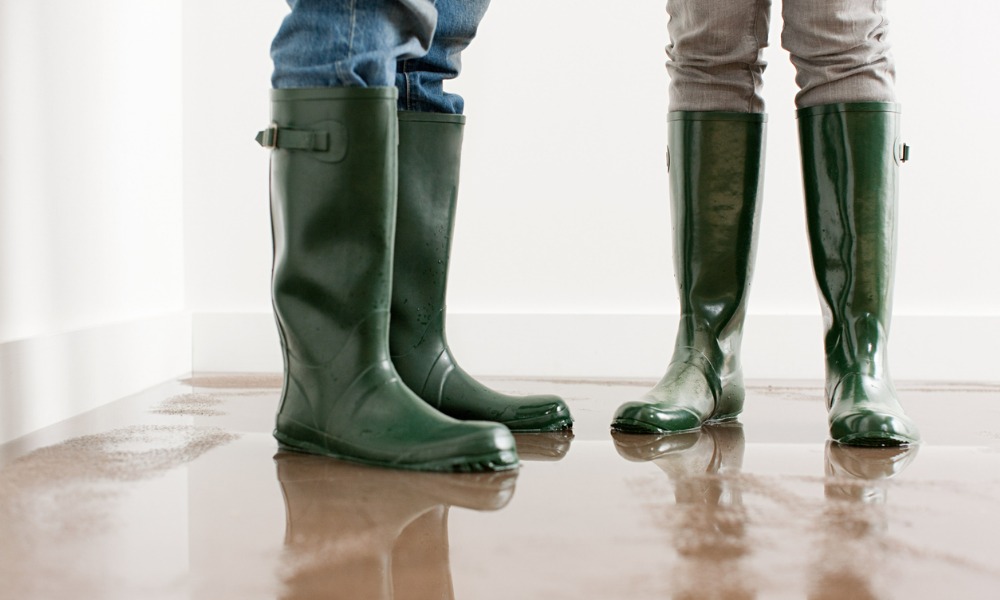Some 277 homes have been red-stickered and more than 1,615 have been yellow-stickered so far

Hundreds of Auckland renters whose homes had been damaged by recent torrential rain and floods are now desperately searching for a new rental in what is already a difficult rental market.
To date, 277 homes have been red-stickered, while more than 1,615 have been yellow-stickered.
One of the many flood-hit homes was Victoria’s eight-bedroom flat in Kingsland, which, though still habitable, had been a misery for them to clean by themselves for the past two weeks.
“The owners came around and didn't really offer us any solutions, didn't provide any extra heaters or dehumidifiers or fans to air the place out,” she told RNZ. “The smell was so bad, and it’s just been so damp ever since then.”
Their lease will expire on Saturday, and they did not want to continue to reside in a damaged place.
And because the new flat they had lined up in St Mary's Bay had been red-stickered, they are once again struggling to find themselves a new home.
“I went to a viewing on the Sunday … and I was about 10 minutes early, but there were still at least five groups of people waiting outside already,” Victoria said. “As I made my way through the property, another at least 30 or 50-odd had shown up. That property got rented three hours after the viewing, like it wasn’t even a full day.”
They’ll be forced to stay with family and friends come Saturday.
And because they were paying their rent in advance, the last payment they forked out went through on the first day of the flooding, but there had been no mention whether the last two weeks of rent would be discounted, RNZ reported.
John Duffy, Consumer New Zealand CEO, said that was something landlords needed to be looking at.
“There should be a discussion between the tenant and the landlord about whether reduced rent is appropriate and that will really depend on how badly the property’s been affected,” Duffy said. “Here we’re talking about situations where the property is still habitable; maybe the carpets need to be taken out.”
He said any flood repairs fall under the landlord’s responsibility.
Tenants whose home had been red-stickered and became totally uninhabitable could give two days’ notice in writing to break their lease and stop paying rent.
Landlords should have insurance, but it was the renter’s responsibility to insure their personal property.
Duffy was concerned about renters having to look for their new home amidst both a housing and cost-of-living crisis.
“It is highly likely that with a reduction in supply you'll see an uptick in price,” he said. “There could be genuine reasons for landlords to be putting prices up; [if] the insurance on the property goes up they may have to pass that cost on to tenants. We would just be really disappointed if landlords were taking advantage of this situation.”
Renters United was similarly concerned about this issue.
“People who are desperate are more willing to accept bad conditions ... we expect that to have a very negative effect on the general state of tenants,” it said.
Spokesperson Ashok Jacob said the group had been flooded with queries from renters about their rights.
With the likelihood of recurring events in the future, Jacob said tenancy laws should better protect renters.
“Extreme weather events as a result of climate change are obviously going to keep happening and tenancy laws really just need to be updated to reflect a country where 50% of adults are renters,” he told RNZ.
Use the comment section below to tell us how you felt about this story.



